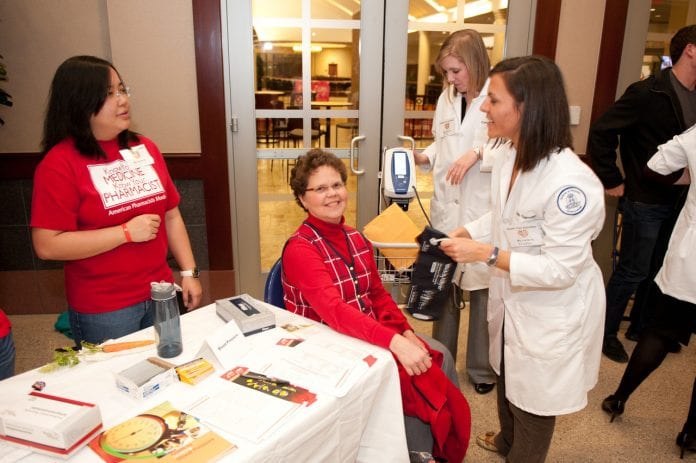Undergraduate degree seeks to address critical topic of community well-being
This fall Belmont University will begin preparing the next generation of expert community health advocates through the establishment of an undergraduate Bachelor of Science in Public Health (BSPH). A dynamic field of study and practice credited with saving millions of lives, public health focuses on improving the health of communities and populations by working to develop the conditions and behaviors that contribute to better health for all. Practitioners address a wide range of topics that can include air, water and food standards; vaccine initiatives; tobacco control regulations; highway safety and injury prevention programs; emergency preparedness; and more.
Dr. Cathy Taylor, dean of Belmont’s Inman College of Health Sciences and Nursing where the major will be housed, said, “Establishing a Bachelor of Science in Public Health supports our College’s goal to prepare graduates who are compassionate providers and transformational leaders dedicated to service. The need for the content in this program is great, as the health of Americans—and Tennesseans in particular—remains sub-optimal. We suffer illness and premature death at higher rates than other developed countries, and the U.S. economy is at risk due to rising healthcare costs with an unhealthy workforce that has grown less competitive in the global marketplace. Our faculty and students can bring their best science and qualified skills to addressing those issues head on.”
“Tennessee is fortunate to have excellent schools and programs in public health that help meet the increasing demand in our state, nationally and internationally for professionals who are well grounded in population health principles and practice, increasingly understood as being more important even than healthcare to meet the desire we all share for optimal health,” said Tennessee Department of Health Commissioner John Dreyzehner, MD, MPH, FACOEM. “We are delighted that Belmont is creating this undergraduate public health program that can meaningfully contribute to this growing emphasis on public health, and I’m grateful to Belmont President Dr. Bob Fisher, Dr. Taylor and others at Belmont who have taken this forward looking step in their institutional journey and educational mission. We look forward to working with them to help train an advancing generation of professionals.”
The Belmont program was designed based on accreditation guidelines set forth by the Council on Education in Public Health. The BSPH prepares students for work in positions in a variety of settings including health-related agencies, hospitals, local and state public health departments, academic research centers and institutes, corporate disease management and wellness programs, non-profit agencies, and healthcare businesses and industries. Examples include:
- Community health outreach worker
- International health organization or missions program assistant
- Research assistant with a nonprofit organization
- Carrying out health-related assessments at construction sites
- Doing consulting work related to disease prevention
- Working at a company that does health communication and health marketing
- Conducting air quality sampling and surveying
Many students with undergraduate degrees in public health go straight on to health-related graduate programs, while some graduates choose to take advantage of government programs to gain more experience before entering the workforce or moving on to graduate study (e.g., serving in the Peace Corps, AmeriCorps or participating in a CDC Training Fellowship such as the Public Health Associate Program, a 1-2 year, paid fellowship).
Belmont’s program will emphasize hands-on field work hours in clinical, research, policy or community health settings at local and international locations. Students in the major will be mentored to achieve personal goals whether they choose employment after their bachelor’s degree or admission into a graduate or professional program. Courses will include explorations in the foundations of public health, epidemiology, environmental health, biostatistics, policy, global health and health economics, among others. Finally, as with all health science programs at Belmont, public health majors will benefit from the ability to work with interdisciplinary teams of students and professional colleagues in nursing, occupational therapy, physical therapy, pharmacy, social work and health care administration, providing the best possible atmosphere to emulate the challenges and complexities of modern health care.
For more information, visit belmont.edu/publichealth.



